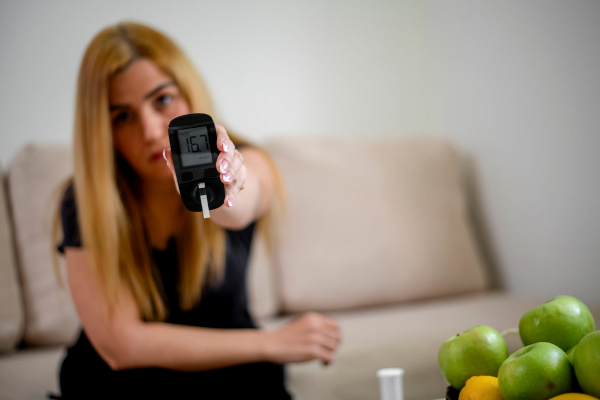Uncontrolled blood sugar can turn diabetes management from a routine to a race against time. Acute hyperglycemia, a sudden and dangerous spike in blood glucose levels, can leave you feeling unwell and pose serious health risks. This article isn’t just about understanding high blood sugar – it’s about recognizing the warning signs and taking action to prevent complications. Let’s dive in and explore how to turn this urgent situation into an opportunity for informed action.
Understanding Acute Hyperglycemia
Hyperglycemia is defined by high blood sugar levels, typically defined as a fasting blood glucose level above 126 mg/dL or a random blood glucose level above 200 mg/dL if you have diabetes. It occurs when the body either doesn’t produce enough insulin (as in type 1 diabetes) or becomes resistant to insulin’s effects (as in type 2 diabetes), leading to impaired glucose uptake by cells.
The common signs and symptoms of acute hyperglycemia can vary in severity. These include:
- Polyuria (excessive urination)
- Polydipsia (excessive thirst)
- Polyphagia (excessive hunger)
- Fatigue and weakness
- Weight loss
- Blurred vision
- Nausea and vomiting
- Altered mental status
What Causes Acute Hyperglycemia?
Hyperglycemia in diabetes can arise from various factors. In type 1 diabetes, insufficient insulin production occurs as a consequence of the autoimmune attack on the insulin-producing beta cells within the pancreas. Type 2 diabetes, on the other hand, is characterized by insulin resistance, where cells become less responsive to insulin’s action, impairing glucose uptake.
Inadequate medication or insulin therapy, such as skipping doses or improper dosing, can also lead to elevated blood sugar levels. Stress and illness, including physical or emotional stress, infections, and surgery, trigger the release of stress hormones that raise blood sugar levels.
Dietary factors, such as consuming excessive carbohydrates or sugary foods and insufficient portion control, can contribute to hyperglycemia. Furthermore, sedentary lifestyles exacerbate insulin resistance and elevate blood sugar levels.
Hyperglycemia and Acute Complications of Diabetes Mellitus
Acute hyperglycemia can lead to various complications, primarily due to its effects on osmolarity, acid-base balance, and cellular metabolism. The two most significant acute complications are diabetic ketoacidosis (DKA) and hyperosmolar hyperglycemic state (HHS).
Diabetic Ketoacidosis (DKA)
This life-threatening condition occurs when insulin deficiency leads to increased lipolysis and ketogenesis, resulting in the accumulation of ketone bodies (acetoacetate, beta-hydroxybutyrate, and acetone) in the blood. The acidic ketones lower blood pH, causing metabolic acidosis and electrolyte imbalances.
Hyperosmolar Hyperglycemic State (HHS)
Hyperosmolar Hyperglycemic State (HHS) is characterized by severe hyperglycemia, dehydration, and hyperosmolarity without significant ketoacidosis. It typically occurs in type 2 diabetes when insulin levels are sufficient to prevent ketosis but inadequate to control blood glucose levels, leading to profound dehydration and neurological symptoms.
How to Manage Acute Hyperglycemia?
Managing acute hyperglycemia involves quickly stabilizing your blood sugar levels and dealing with the root causes. Here’s a breakdown of key strategies you need to consider:
Fluid Resuscitation and Electrolyte Management
In this hyperglycemia emergency treatment, intravenous fluids, typically isotonic saline, are administered to restore circulating volume and correct electrolyte imbalances, such as potassium and sodium irregularities.
Insulin Therapy and Glucose Control
Prompt initiation of insulin therapy, typically through intravenous administration of regular insulin, allows for rapid reduction of your blood glucose levels. Continuous glucose monitoring facilitates precise control while minimizing your risk of hypoglycemia.
Addressing Underlying Precipitating Factors
This may involve treating concurrent infections, discontinuing medications that contribute to hyperglycemia, or managing stressors that exacerbate the condition. Addressing these precipitating factors helps you prevent recurrence and promotes long-term glycemic control.
Prevention Strategies
Educating yourself about diabetes self-management is crucial for preventing persistent hyperglycemia episodes. This includes learning about monitoring your blood sugar levels, taking your medications as prescribed, following balanced meals, participating in a regular physical routine, and recognizing early signs of hyperglycemia.
Make sure to keep track of your blood glucose levels as instructed by your healthcare provider and stick to your medication schedule, including insulin administration, oral medications, and lifestyle changes. Consistently monitoring and following your treatment plan can help you maintain glycemic control and reduce the risk of hyperglycemic episodes.
It’s also important for you to recognize and manage risk factors associated with diabetes in accordance with acute hyperglycemia management guidelines. Collaborate closely with your healthcare provider to pinpoint specific risk factors, including stress, illness, changes in medication, dietary habits, and lack of physical activity.
Find strategies to mitigate these risk factors, such as practicing stress management techniques, managing illnesses proactively, adjusting medications when necessary, making dietary modifications, and incorporating regular physical activity into your routine. By addressing these factors, you can reduce your susceptibility to acute hyperglycemic events and promote long-term glycemic control.


